It takes a mountain of effort to tell the truth about China's economy
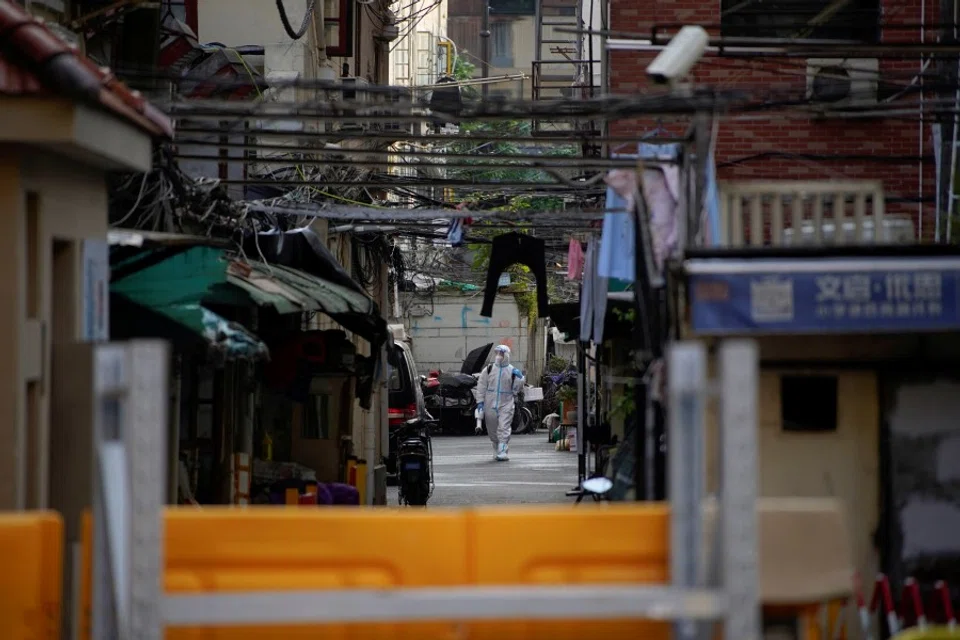
Over the past few days, Chinese economist David Li Daokui has been vilified online for the comments he made during the Tsinghua PBCSF Chief Economists Forum on 14 May.
Li's two main points were widely circulated on social media: first, that the pandemic efforts over the past two years have increased the Chinese people's average life expectancy by ten days; and second, that quarantine facilities should be set up next to factories so that production would not disrupted.
A netizen said snidely that going by the logic of the first point, "fighting the pandemic each year brings benefits and everyone would live an extra 500 years".
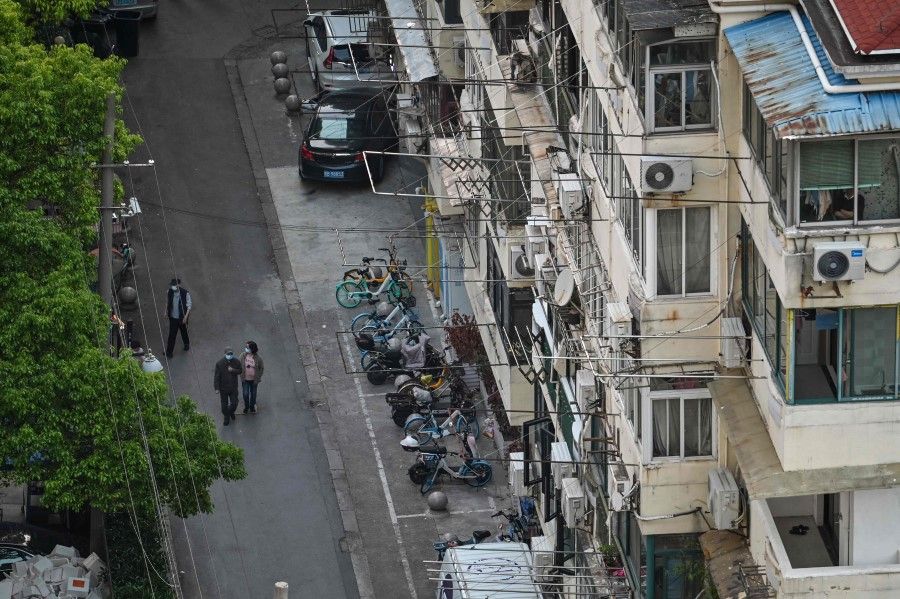
Meanwhile, netizens summed up the second point as "centralised winning" (集中赢, a pun on 集中营, concentration camps) - controlling the pandemic while maintaining productivity for a sure-fire solution.
However, most netizens that mocked Li probably did not hear his speech in its entirety.
Effective pandemic controls
Indeed, Li said that the two years of the pandemic have added ten days to the average life expectancy of the Chinese. According to his rough calculations based on the number of Covid-19 deaths in the US, if China was unable to curb the spread of the virus, four million lives would have been lost over the past two years. Life expectancy in China is currently 77 years, and if those who died early because of the pandemic were aged around 60 or 65, saving these lives is equivalent to adding an average of ten days to the life expectancy of each Chinese person.
While Li's calculation is a rough estimate, his meaning is clear: the fight against the pandemic over the past two years has been effective.
According to his calculations, a single percentage point difference in per capita spending in China would lead to a ten-day difference in average life expectancy.
Nonetheless, Chinese media personality Lian Qingchuan did not hold back in his criticism. In an essay, he wrote that a longer average life expectancy is a result of cooperative efforts in many areas. He said that Li's remark was "an insult to the intelligence of the Chinese people, and the hard work that China has put in over the past 40 years, as well as the market economy and social welfare, to which countless people have contributed their knowledge, efforts, blood and tears".
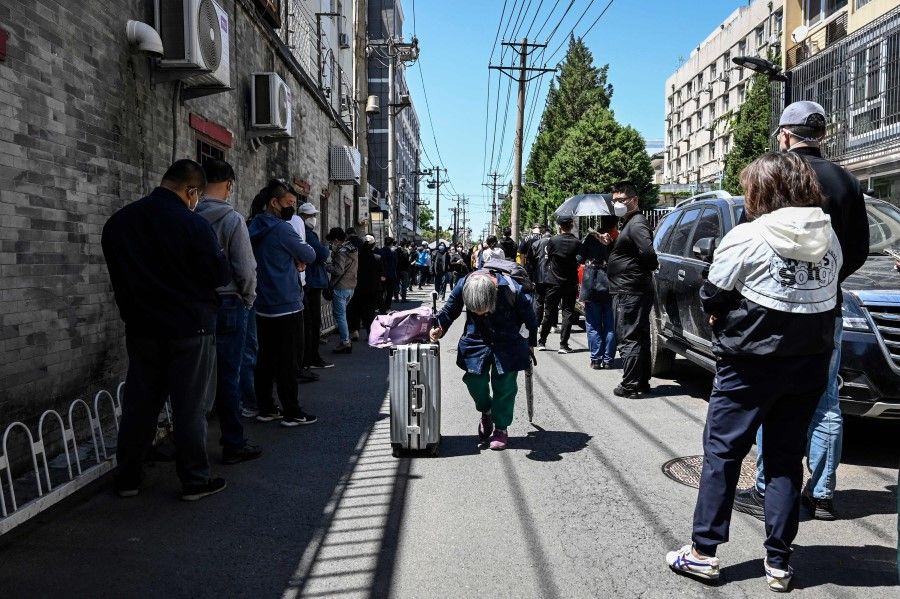
However, that was just the first part of Li's speech. Subsequently, he spoke about the link between consumption and life expectancy. According to his calculations, a single percentage point difference in per capita spending in China would lead to a ten-day difference in average life expectancy. In other words, a 1% increase in per capita spending would be equivalent to four million lives saved over two years of fighting the pandemic.
A tactful remark
Li said that China was fighting a war on two fronts: one, preventing the spread of the virus to reduce the loss of lives; two, securing the economy by maintaining production lines and industrial chains.
On the latter point, Li expressed his concern that the US was hoping to shift production chains to Southeast Asia, and he urged China not to do itself in by focusing only on reducing infections and neglecting the industrial chains. Hence, he suggested the approach that netizens later derided as "centralised winning" (or concentration camps).
Although Li went around in circles and made a number of comments, his core message was simply that "protecting the economy is protecting lives".
Li also warned of the trend that falling income amid the pandemic might have created psychological fear, affecting people's willingness to consume in the future. He urged the government to provide cash handouts to low-income families.
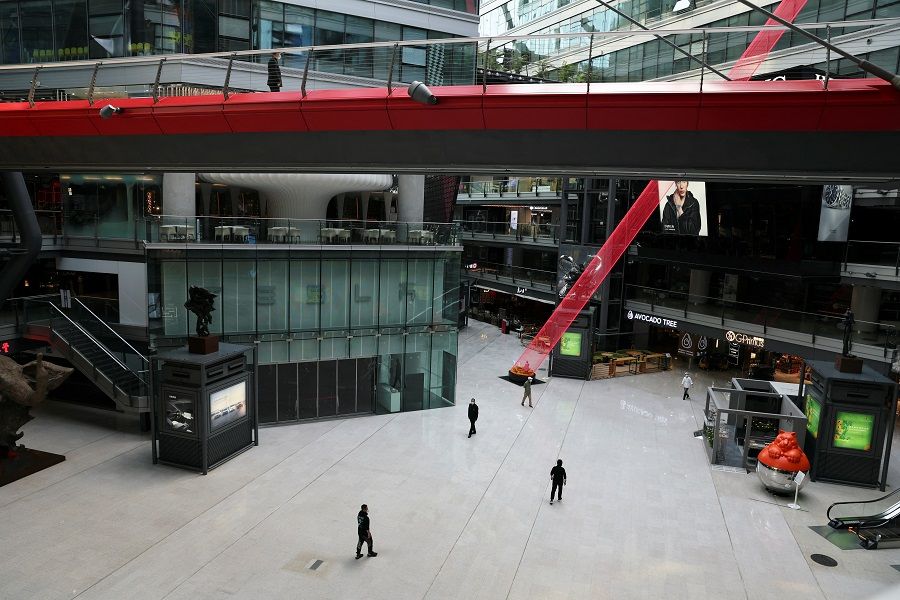
Although Li went around in circles and made a number of comments, his core message was simply that "protecting the economy is protecting lives". However, in the numerous media reports following the forum, the pandemic was the only one highlighted in his discussion of "a war on two fronts".
Some people might ask, "Since this is what he is trying to say, why beat about the bush and not go straight to the point?"
The truth is, amid China's current environment, the "David Lis" in the country certainly understand better than anyone else that not everything can be said directly - some are tactfully said while others are bit back.
Since decision makers of the Chinese Communist Party have decided to "unswervingly adhere to the dynamic zero-Covid policy and resolutely fight any attempts to distort, question or dismiss China's anti-Covid policy", the space for discussing anti-Covid models has been greatly reduced, not to mention the fact that China's dynamic zero-Covid policy is not to be questioned. Thus, some views can only be indirectly expressed, which is also characteristic of Chinese rhetoric.
A friend working in the finance industry jokingly said, "If the report writes that the economy is ushering in a slow recovery phase, it really means that it will not recover in the short term."
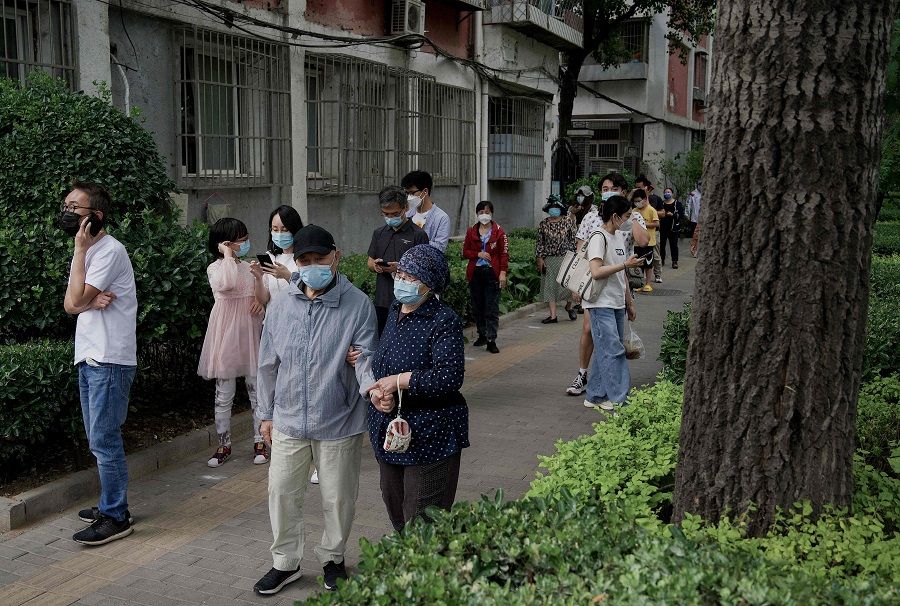
Li is not the only one who speaks in this manner. After Chinese officials released the country's economic data for April on 16 May, restrained writings are found in the analysis reports of several banks and securities companies.
A friend working in the finance industry jokingly said, "If the report writes that the economy is ushering in a slow recovery phase, it really means that it will not recover in the short term."
A dilemma
At the end of the day, the fact that Li's remarks were taken out of context and prompted a backlash was because people had misunderstood him and believed that he was defending the authorities' anti-epidemic policy.
And behind the criticisms lies Chinese society's anxiety and dissatisfaction over the prolonged state of strict epidemic prevention and its inability to get out of the difficult situation.
Li's proposal that "protecting the economy is protecting lives" actually represents the mainstream thinking in economics as well - no matter how successful the fight against the pandemic may be, if the economy is devastated, then people's livelihood would be out of the question and the country's overall stability would be affected.
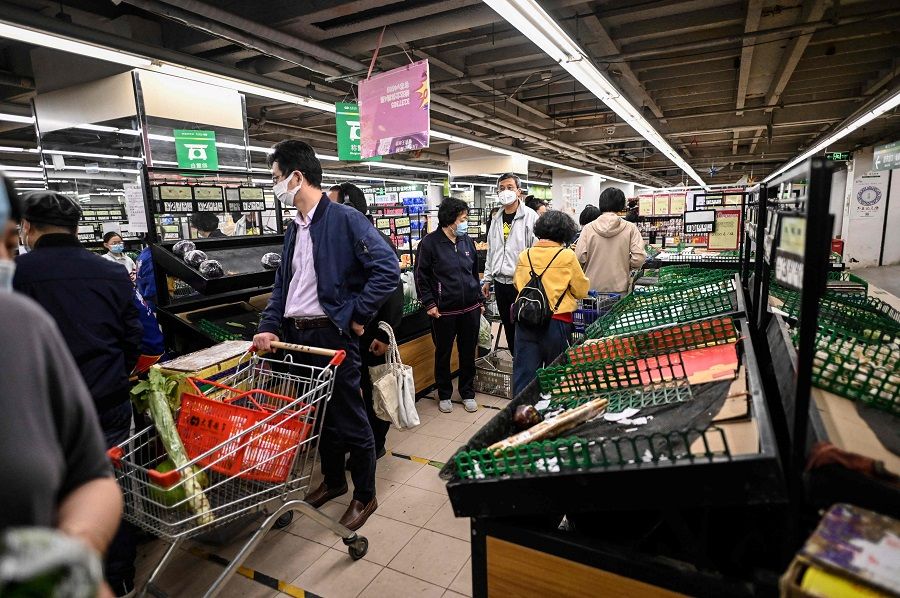
Based on recent moves by the officials, Chinese higher-ups should be aware of the alarms sounded about the state of the economy. Since last week, Shanghai has accelerated the resumption of work, production, business and the market to regain social and market confidence as soon as possible.
The Standing Committee of the Chinese State Council has also called for the stabilisation of employment and the economy in general, while Chinese Vice-Premier Liu He has also soothed the nerves of the badly hit tech industry at a meeting of the Chinese People's Political Consultative Conference on 17 May.
The Chinese economy is experiencing yet another "dark moment" since the outbreak of the pandemic in 2020. Although balancing between containing the pandemic and stabilising the economy cannot be freely discussed in Chinese society amid the pressure of the tough dynamic zero-Covid policy, this does not mean that the dilemma does not exist. On the contrary, this is likely to be the main dilemma that China has to face next.
Related: Tough Covid measures in China may drag on for another year | Shanghai's Covid shutdown is disrupting domestic and global supply chains | Can Shanghai meet its zero-Covid deadline and resume production? | Escape from Shanghai: The sorry state this megacity finds itself in | Best of both worlds: China wants both zero-Covid and economic growth | Pandemic in China: Will Beijing repeat Shanghai's mistakes?
